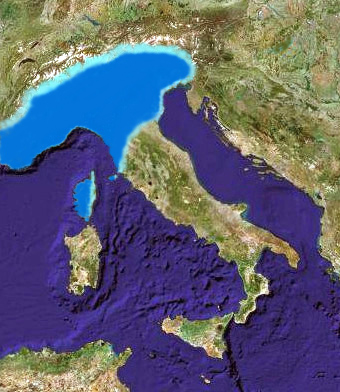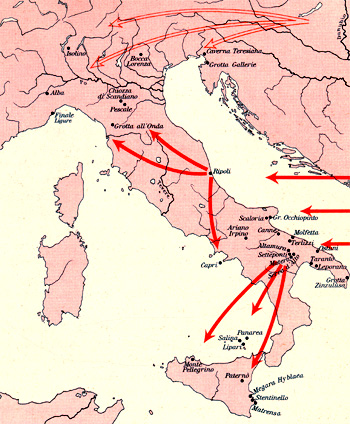[FONT=Times New Roman, serif] Brittoniclanguages has been introduced as dominant language in Brittany byBrittons from Britain between the 6° and 7° centuries. OK. But moreand more scholars think that Brittons found in West Brittany apopulation still speaking a celtic (gaulish) language, at least outof the « urban » centers well romanized. The cause of theceltic language conservation until middle of the 20° Cy would resultof a better resistance to latin by a population poorly accultured.Even in the N-E of Gallo-Roman Brittany the most of the basicpopulation kept lately enough celtic personal names when in othersterritories the mode was the roman names.What seems supporting thisis that the ancient toponymy show a strong colonization of N-EBrittany, denser than in South or South-West when the languageperdured very longer in South-West. Even in Loire-Atlantique, adepartement put in the artificial region of « Pays-de-Loire »,a breton dialect was still spoken among salt workers and fishers inthe westernmost parts until beginning of the 20° Cy, even if turninginto a relic language. By the way, this region N-W of Nantes (Naoned<< Namnet-) saw Breton soldiers garnisons under Rome rulearound the 4° Cy, before the big tribulations of the 6°/7°/8°cneturies.. [/FONT]
[FONT=Times New Roman, serif]InNorth Brittany breton was dead around Saint-Malo and Saint-Brieucabout the Late Middle-Age.[/FONT]
[FONT=Times New Roman, serif] Thereis no way to be astonished concerning the gaulish (declining)conservation in some places. It seems in remote and for the mostmountainous regions, celtic languages were spoken until late enough,in Auvergne (4° Cy), in Czechia, maybe Switzerland (someones hadadvanced the 8° Cy I think for Bohemia, but I don't know if it'sreliable. In french and occitans dialects the celtic words conserved,in a very little number, are denser in occitan than in oil dialects,these last ones more strongly influenced by germanic language(s). Itseems in West oil there has been conserved a few more words too butit would deserve deeper studies.Always the question of centers ofcolonization in more easily reached places.[/FONT]
[FONT=Times New Roman, serif] Tocome back to this very thread, it's unseasy to date precisely theapparition of proto-celtic in Europe. I suppose the Iron Age(Hallstatt) could have been the period of the Qw- >>P- evolution, un der the influence of newcomers from Eastern Europe ;the apparition of ¼ of new types among the supposed celtic elite ofTumuli culture could spport this. Some old scholars spoke of'Illyrians',perhaps they were not so wrong ? I cannot exclude(as do some scientists) a common origin of the Qw- >> P-phenomenon in Europe (celtic, italic, hellenic): dates seemconverging (Iron?), places seem converging (Hungary or North Balkansat first?). - It could be possiblefirst Qw italic speakers were in North Italy (Terramare?) before thecoming of P speakers (around early Villanova?) soIron ??? Taranis couldcorrect me for this detail : Qw/Pshift ?[/FONT]
[FONT=Times New Roman, serif]IfP- mutation is linked to Iron Celts (and others if I'm not wrong) sowe have to conceive earlier Celts in Qw-in the same places before them and around them. I didnot founddatationsfor the P- lost in celtic.Wiki says the first datesfor proto-celtic would be Urnfields times. Uneasy to confirm. Hubertand others thought the Tumuli culture of Southern Germany could havebeen the cradle of future Celts ; what doesn't affirm the celticlanguage was fully differenciated then. But the Tumuli cultureconsidered as an Unetice heritage what is greatly exagerated Ithink : they hadUnetice strong cultural influences but as others same time culturesthey presented local variants. All the way it doesn't infer theyspoke the same language with Unetice true descendants (it's even notproved all Unetice people were speaking only ONE language. But Tumuliculture of Germany is in lands which saw strong BBs imput (evendemically even if less than culturally) and it seems to me and to alot of people celtic developments took place around ancient BBsstrongholds. This doesn't say Celts are globally BBs genuinedescendants. Between the BBs of Portugal around the 3000/2900 BC andthe Tumuli there is a big gap of time. The BBs in Germany seem later,around the 2500 BC. Tumuli spanned about 1600/1200 BC. And celticelite physically, spite some little component, doesn't tie with firstBBs, nor it ties with Corded and even with the new « barbarian »elite of Iron found in the richer bavariantombs. But it seems analready mixed population of autochtones pre-I-Ean and a dominantI-Ean element occupiedWestern Europe (dominance less strong along Atlantic) and took on aBBs heritage. Were they the first heirs of the BBs ? : notevident. Megalithers ofAtlantic sure enough had already taken their « part » Ithink.[/FONT]
[FONT=Times New Roman, serif]Idon't think at this stage of my absence of knowledge that the firstmegalithers were I-Ean speakers. Evenin Germany, the BBs found non-I-Ean people. Butthe mix they surely formed later during finalAtlantic Bronze Age wasmaybe the result of contactswith first western I-Ean speakers, Isee as being in some way the « fathers » of the subsequent speakers of lusitanian, ligurian and others languages ofWest. I'm not sure the first well defined celtic languages werebrought in West by later newcomers. I rather see celtic languages asan evolution 'in situ' of one of the first I-Eans languagesintroduced in West so verylater tha in East, evolutionconditioned by the quality of some specific local substratum.Laterinfluences could have inflecteddialects, but I don't think celtic introduction would be too late.And Urnfieldsis a complicated phenomenon seemingly with roots in Hungary but withdiverse ways of expansion according to regions, demic here, culturalonly there ; religious phenomenon bringed by first moves, thenacculturation, then new moves of acculturated people ??? Tocome back to proto-Celts, if Grigoryev is right, the first marks ofthem could correspond to some Seyma-Turbino artefacts found in Franceand Britain around 1600/1500 BC (started in Steppes in 1700 BC forhim after contacts between settled I-Eans tribes and theSeyam-Turbino culture bearers, what is not an identity of(proto-?)proto-Celts with Seyma-Turbino ! The timing could makesense more or less ...theY-R1b occidental subclades datings could help, if sure. [/FONT]
[FONT=Times New Roman, serif]Pityall these peopledidn't write so soon!!! Butthen we would not have the pleasure of guesses.[/FONT]
[FONT=Times New Roman, serif][/FONT]



